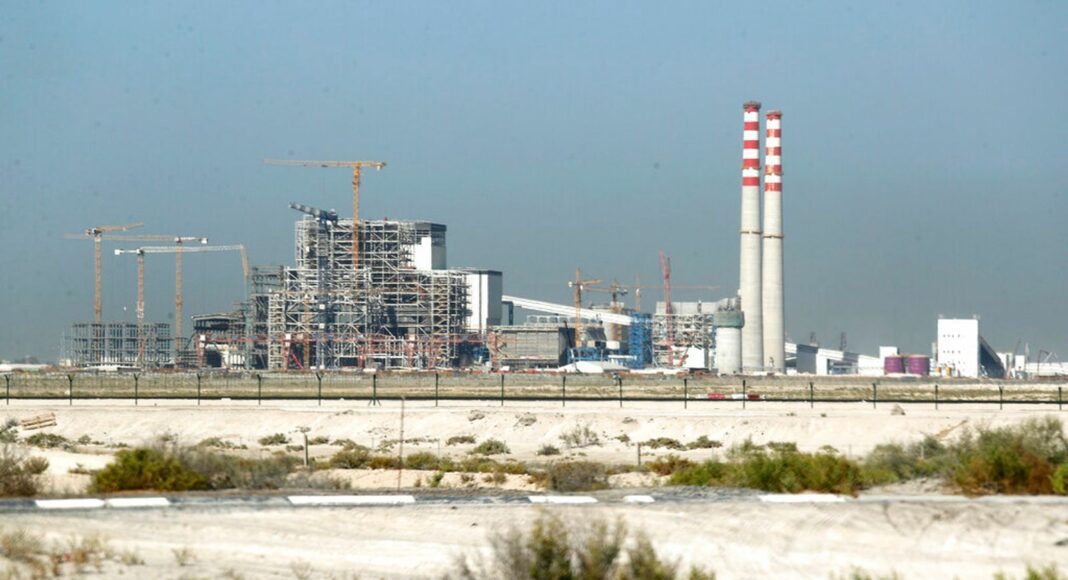The nation hosting the COP28 climate summit has had its climate plan downgraded to the lowest category.
The United Arab Emirates’ climate plan is now rated “critically insufficient” by Climate Action Tracker (CAT), a consortium of climate analysts and thinktanks.
The group assesses whether countries’ plans – known as “nationally determined contributions” (NDCs) – are good enough to fulfil their part of limiting global warming to 1.5C above pre-industrial levels.
Even though the UAE recently ramped up the targets in its plan, the policies to match it were missing, CAT said.
“A country like the UAE with very high per capita emissions and very high GDP per capita, they need to reduce their emissions. That’s very clear. And that’s currently not happening,” said Dr Niklas Hohne, an analyst from New Climate Institute involved in the research, and a professor in cutting emissions.
In October, the UAE’s national oil company, ADNOC, awarded contracts worth $17bn (£13bn) for the development of the Hail and Ghasha offshore gas fields, as part of a $150bn (£118bn) fossil fuel expansion plan.
“That’s totally counter to what is discussed here [at the climate summit],” said Dr Hohne.
The UAE’s COP28 team was not immediately available to comment.
It comes as the UAE’s COP presidency team unveiled a slew of announcements on energy it had brokered with governments and industries.
More than 110 countries pledged to triple the world’s renewable energy capacity and double energy efficiency by 2030, in a bid to displace demand for fossil fuels.
Meanwhile, more than 20 nations committed to trebling nuclear power, and more than 50 oil and gas companies said they would tackle emissions from their operations.
Image:
World leaders pose for a group photo during the United Nations Climate Change Conference (COP28) in Dubai
Spreaker
This content is proed by Spreaker, which may be using cookies and other technologies.
To show you this content, we need your permission to use cookies.
You can use the buttons below to amend your preferences to enable Spreaker cookies or to allow those cookies just once.
You can change your settings at any time via the Privacy Options.
Unfortunately we have been unable to verify if you have consented to Spreaker cookies.
To view this content you can use the button below to allow Spreaker cookies for this session only.
Enable Cookies
Allow Cookies Once
Click to subscribe to ClimateCast wherever you get your podcasts
Tom Evans from thinktank E3G, which was not involved with the analysis, but is tracking progress in Dubai, said: “For all the flashy announcements made on the stage of COP, when you look closer it’s clear that there’s much more the UAE needs to do to get its emissions down.”
CAT had already rated the UAE’s plan “insufficient”, the fourth lowest of five categories.
The downgrade was partly due to the analysts filling out missing data about greenhouse gas emissions from air conditioning, relied on by people here in Dubai, where it is currently 30C in winter.
22:48
Inside the climate summit
Read more: Is Dubai playing its part to tackle climate change?Will COP28 actually change the world?Is the UK ‘fuelling’ the climate crisis?
The change was also down to an update in what science says is needed to try to limit global warming to 1.5C – a change that affected other countries’ assessments too.
Image:
The coal-powered Hassyan power plant is seen under construction in Dubai
But Dr Hohne said it was “particularly unfortunate” in the case of the UAE because as COP28 president it has a leadership role, “and usually they should really do the right things”.
However, he praised the advances the UAE has made, including its investment in renewable power domestically and in dozens of countries abroad, though it is outweighed by the investment in oil and gas.
Other countries rated ‘critically insufficient’ include fellow major fossil fuel producers like Russia and Saudi Arabia, as well as Turkey, Singapore and Thailand.




